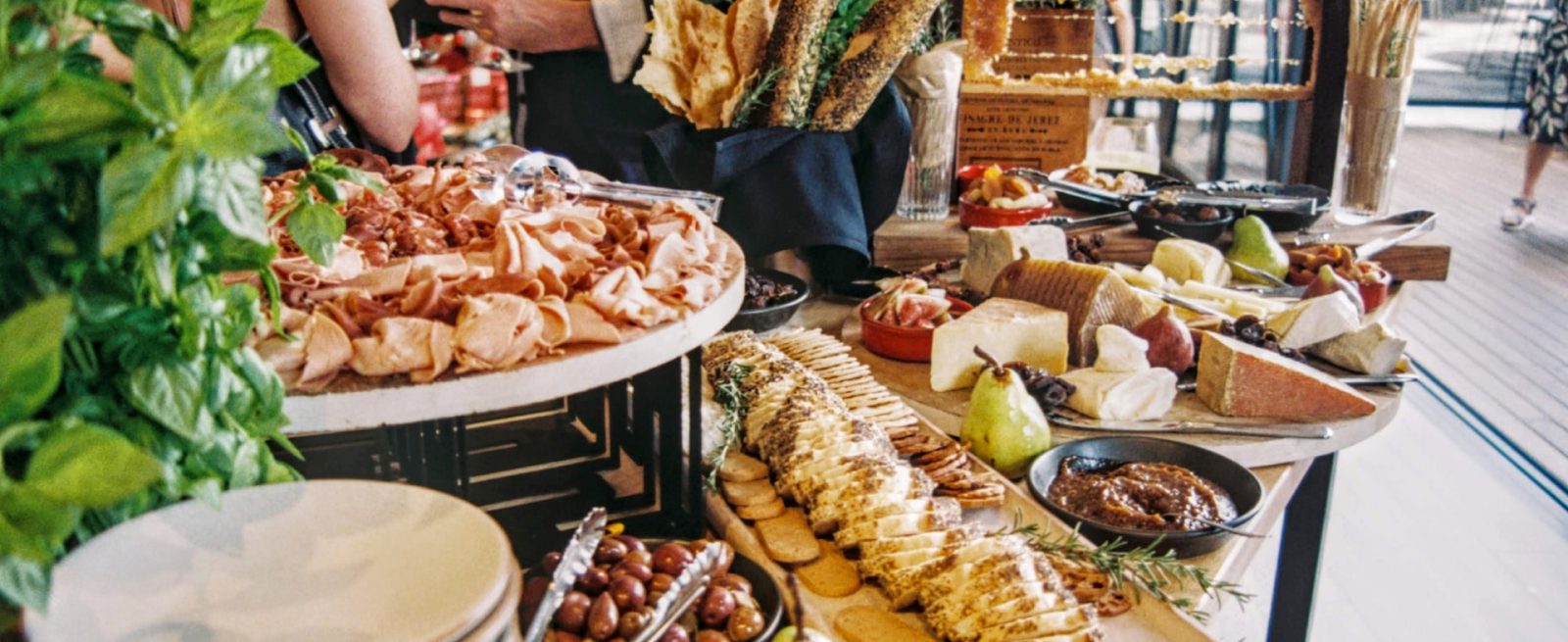The Secrets to Successful Catering
4 Min Read By Izzy Kharasch
A strong catering business can be a restaurant’s biggest moneymaker. You know exactly how many people you’re going to serve, how many portions will be provided, what the cost is, what you’re going to charge and what your net profit will be.
Most of the year, catering can comprise 10 to 15 percent of your total sales, but during December, if 20 percent of sales are not coming from catering, you’re missing an opportunity. Start contacting customers in August to plan for holiday parties, but spend the first half of the year honing your catering operation.
Just like everything else in hospitality, there are guidelines that make for more successful outcomes. Just about all of my customers cater, and these are a few of the tips that I usually provide. (And you’re getting them for free!).
- Devote a section of your website to catering
- Offer a fixed-price catering menu inclusive of desserts
- Choose items that will travel well
- Make sure customers get everything they need
- Avoid third-party delivery
- Hire a good catering manager and make sure they’re making a good salary
- Know when to say “no”
Now, here are some additional details about each.
Devote a Section of Your Website to Catering
I find that, usually, customers would rather interact with a well-designed and functional website than have to try to get someone on the phone to discuss catering. The packages or options you offer are spelled out in black and white so there can be no confusion about what is and isn’t included and how much it costs.
The website should allow them to enter the type of event they want catered, date, location and number of expected guests. They should be able to leave a name and phone number so your catering manager can call them back to firm up the details.
When the catering manager calls back, they should sound excited to cater the customer’s event!
Offer a Fixed-Price Catering Menu Inclusive of Desserts
The catering menu needs to be very clear on what is included in each package, and we try to wrap as much into those orders as possible. If you say to somebody “would you like dessert with your order?” they all say no. What we do is just include dessert with our catering and we build it right into the price. The dessert itself doesn’t have to be expensive.
Then everybody’s really happy — they look at it and say, “Wow, we got this great lunch and we have dessert!” And it lets us move a product that brings us greater profitability. People say they don’t want dessert, but we’ve never seen a pan come back full.
Service or delivery fees should also be included. People are getting very upset with this whole tipping thing – they don’t know who to tip or how much, so we keep it simple. If your budget is $250, we’ll make it work, including whatever gratuity or delivery fees are involved.
Choose Items That Will Travel Well
If we’re doing a drop-off catering, we want to sell something that’s wrapped up – in the case of a Mexican restaurant, for example, a burrito.
There is new packaging technology that allows steam to leave the containers so food doesn’t deteriorate. We don’t want those things to happen, and it’s one of the reasons we want people to commit to picking up their orders at a particular time, or for us to deliver on time. We want whatever we serve to be the best it can be wherever it travels to.
Make Sure Customers Get Everything They Need
Good catering is selling peace of mind to the customer. They want to know that they won’t have to run out at the last minute for napkins, cups or cutlery. We’re the experts and we know what they will need.
We try to make sure that if they need pans or sternos, anything we can sell or rent, we are offering those items, explaining why it’s a good idea to have them and making it part of the sale.
Avoid Third-Party Delivery
I have a lot of active clients out there, and not one of them would use a third party for catering. It’s going to be the owner, the general manager or a good staff member because this has to do with marketing.
Catering is your time to shine. It’s all about quality of the food and quality of the presentation, and you won’t get that kind of care from Uber or GrubHub. They’re fine for someone ordering a family meal, but when it comes to catering, don’t entrust delivery to just anybody.
Hire a Good Catering Manager
One of the most important things a catering manager does is marketing. We encourage them to call five to 10 business offices a week and offer to drop off a small lunch for four people or samples of our product.
You give people a little lunch, a little taste, and cards for a discount on their first catering order. Social media is great for many things, but I don’t think anything has yet replaced somebody showing up at your office with free food. It’s probably one of the most effective ways that our clients increase their catering sales.
In operations where we have a catering manager, we usually do a combination of salary plus commission. If we want that person to earn $50,000 a year, we put them on a salary of $25,000 to $30,000 and let them earn the rest in commissions. A good catering manager will exceed that target. Owning a piece of the profit as well is good motivation.
We want that person to be able to earn money in a couple of different ways, so if they have a party of 50 and we have servers as well as the catering person who set it up, gratuity might be 22 percent. Right off the top, the catering manager gets five points of that, and the servers split the remaining 17.
Know When to Say “No”
When we give somebody a price, say $25 a person for everything, and they say,”can you charge me $20,” we walk away. That’s really hard for a young restaurateur to do – saying no to business.
Watching someone go somewhere else isn’t pleasant, but we will not negotiate our prices. If we do negotiate, we’re unhappy, and then the customer may feel they didn’t get everything they wanted. You have to stick to your prices.
Building a good catering business can give you the resources you need to invest in your restaurant and in marketing. Don’t let the opportunity pass you by.


